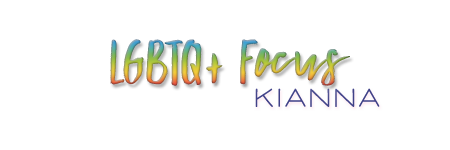The video game scene has not always been the most current with LGBTQ+ representation. This article will feature a game that came out in 2020: The Last of Us Part II. The game itself was quite a feat, but that is not something we will focus on in this article very much. Rather, we will be highlighting the many queer characters in the game, especially those with leading roles. To give a little bit of backstory, let's set the scene. The Last of Us Part II is the sequel to the 2013 The Last of Us. Both are set in post-apocalyptic worlds where a majority of the population is now zombies. The game lends itself to horror themes and has mature content.
In the sequel, a character we see a whole lot more of is Ellie, who is a lesbian. We also get to heavily see Ellie's love interest, Dina, who has romantic relationships with both men and women. In addition, we are introduced to Lev, who is a transgender male. In order to make Lev as authentic as possible, the company hired a transgender teen to portray the character. However, the character did not come without criticism, which often highlighted Lev being deadnamed in a scene. At the same time, the game doesn't really allow Lev to fully explore his new identity through his own storyline.
One main solution proposed to the deadnaming specifically was having a trigger warning or some sort of forewarning so players could prepare themselves for the scene. This is something I think would be highly beneficial and, hopefully, is something the company takes into account in the future. Though this is disappointing, the company did recognize this and attempted to put a positive spin on it in order to continue adding diversity into their games. They realized the portrayal may not have been fully accurate but they hope to evolve and perfect this as much as possible to continue to bring LGBTQ+ characters into their games.
While some may say that any representation is better than none, it is important that this representation is done right and in a way that honors the community. There were some great steps made here and some that were far less great and actually harmful to the community, which was intended to be uplifted by the diversified representation. It's important to keep people accountable in these situations and ensure that while trans and LGBTQ+ representations are increased, they are also done respectfully and accurately.
The World Cup, held in Qatar this year, has been heavily covered by the news and created quite a bit of buzz. The event itself is a heavily featured and important event, and one that brings us to the subject of our article. Whether you know it or not, Qatar is not very friendly to the LGBTQ+ community. Citizens are not able to have same-sex marriages or relationships and homosexual relations between males are illegal. The country also does not allow protests, demonstrations, or campaigns for LGBTQ+ rights, effectively silencing that community within its borders. The World Cup brought these discriminatory practices under especially heavy coverage, leading many to discuss LGBTQ+ rights, or lack thereof, within the country. Comedian Joe Lycett is our focus/feature of today's article because of his actions in response to the World Cup and Qatar. Let's get into what happened:
A few days before the World Cup, Lycett called out David Beckham, a World Cup ambassador. Beckham had appeared on the cover of a gay lifestyle magazine and has been called a "gay icon" by Lycett himself. Lycett hoped to convince Beckham to stop being an ambassador because of the discriminatory practices in Qatar. After hearing nothing from Beckham and shortly before the opening ceremony of the World Cup, Lycett shredded a significant amount of cash. His actions were initially criticized as wasting such a grand amount of money is irresponsible. However, it was revealed the money was instead donated to two LGBTQ+ charities rather than being shredded.
Lycett had previously traveled to Qatar and was horribly taken aback by the conditions there, not feeling safe himself. His actions were made with the intention to get Beckham to stop being an ambassador and hopefully put pressure on the country to reign in some of its discriminatory legislatures. Essentially, he hoped that Beckham doing something would cause a larger effect on the country as a whole to improve LGBTQ+ rights in Qatar. Beckham made comments from his team that were less than satisfactory to Lycett. They noticeably removed LGBTQ+ rights from the discussion and stayed as neutral as possible rather than condemning Qatar as Lycett would have hoped for.
Though this sets a less-than-positive tone on the World Cup, it is undeniable that it helped bring to light many injustices in Qatar that would not have seen as much coverage and pressure otherwise. It is also the first time the World Cup is being held in the Middle East, which is an unprecedented feat in itself and one which had to be navigated with new challenges. It is my hope that Qatar will begin to move towards accepting LGBTQ+ people and not criminalizing things which should be given human rights. However, hope will only get us so far. Though Lycett's actions may have been controversial, especially at first, it's influential people like this who may be able to create that cascading effect needed to set things into motion. I do wonder what might've happened had Beckham responded differently to the pressure, but perhaps that is something we will get to see in the future.

